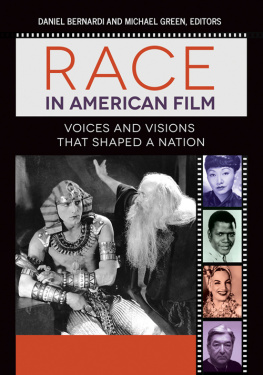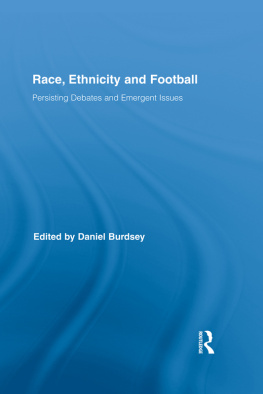First published 2009 by Paradigm Publishers
Published 2016 by Routledge
2 Park Square, Milton Park, Abingdon, Oxon OX14 4RN
711 Third Avenue, New York, NY 10017, USA
Routledge is an imprint of the Taylor & Francis Group, an informa business
Copyright 2009, Taylor & Francis.
All rights reserved. No part of this book may be reprinted or reproduced or utilised in any form or by any electronic, mechanical, or other means, now known or hereafter invented, including photocopying and recording, or in any information storage or retrieval system, without permission in writing from the publishers.
Notice:
Product or corporate names may be trademarks or registered trademarks, and are used only for identification and explanation without intent to infringe.
Library of Congress Cataloging-in-Publication Data
The race of time : the Charles Lemert reader / edited with an introductory essay by Daniel
Chaffee and Sam Han.
p. cm.
Includes bibliographical references.
ISBN 978-1-59451-645-0 (hard : alk. paper)
1. Sociology. 2. Lemert, Charles C., 1937 I. Chaffee, Daniel. II. Han, Sam, 1984
HM585.R33 2009
301.092dc22
2009025498
ISBN 13 : 978-1-59451-645-0 (hbk)
ISBN 13 : 978-1-59451-646-7 (pbk)
Designed and Typeset by Straight Creek Bookmakers.
Anyone considering contemporary American sociology who began by looking around for a public intellectual who embodied the broad sweep of the disciplines conceptual trends and political currents would arguably do no better than closely reading the work of Charles Lemert. Lemert, whom Norman Denzin has called the preeminent social theorist working in America today, has been a remarkably influential figure both in and beyond the academy. Multidisciplinary, astonishingly eclectic, politically astute, and without doubt the most passionate public speaker representing American sociology, his uniquely crafted social theory at once manages to reflect the imprint of, and triumphantly transcend, everything from neo-Marxism to globalization, Goffman to Giddens, poststructuralism to postmodernism. His concrete, conversational style of writing is legendary: he has, over many decades, enthralled students with readerly, engaged accounts of the latest theories from the Continent, the intersections of modern sociology and cultural studies, or the global transformations of contemporary capitalism. In his supple, sociological intelligence, stylish writing and commitment to progressive politics, he has managed the astonishing feat of combining modernity and postmodernity, identity and society, race and representation, utopia and realism.
In one sense, Lemerts sociological genius is all his own. Anyone who has spent as long as ten minutes in his company cannot help but be struck by his infectious zest for social life, his endless fascination for culture, tradition, and religion as well as his consuming interest in others. An intellectual free spirit and courageous nonconformist, Lemerts writing might arguably be treated as an instance of Freuds polymorphously perverse unconscious in action as his writing wanders effortlessly from modernization to race, celebrity to biography, French sociology to postcolonialism. The fact that he makes all this look easyindeed, his writing rarely falls short of the most radical sociological imagination, at once intellectually stimulating, sociologically engrossing, and politically committedis, again, testament to the practiced arts of his sociological vocation. As Lemert has stressed time and again in his work, it is the mundane, repetitive, and routine nature of daily social life that gives to the structured, structuring order of modern institutions their solidity, strength, and durabilityall of which serve to underscore the practiced arts of personal and professional life, the performance of our social scripts, and the political contours of our affective relations with others.
In another sense, however, Lemerts sociological gift is also a product of his time, his placement in the academy, and his intellectual debts. As a student of Talcott Parsons at Harvard, Lemert inherited a sharp, shrewd sense of the interweaving of the personal and the social in the production of institutional life. As a result of various contacts with Erving Goffman, he zoned in on the importance of the everydayof practiced social performanceto social relations. As an acquaintance of Pierre Bourdieu during his years in Paris in the 1970s, he came to focus, in a rigorous and systematic fashion, on the centrality of habits to the reproduction of institutional social orders. And, as a friend of the American sociologist Alvin Gouldner, he came to be acutely alert to the social-historical contours of social crisis. None of these influences were straightforward, not unmediated by other intellectual currents. Lemert, more than most sociologists, developed and retains a powerful way of drawing from the most inspiring around him whilst integrating new insights into his own laboratory of social-historical thinking. In this sense, he has drawn from the constituted realm of social theory in the very act of reconstituting it in novel directions.
This remarkable blend of the idiosyncratic and the inherited, the constituting and constituted, is displayed time and again in the texts of this most wonderful collection edited by Daniel Chaffee and Sam Han. Consider, for example, Lemerts critique of postmodernismwhich he developed initially in the 1990s in response to the modernity/postmodernity debate and then subsequently in a revised version in the early 2000s to deal anew with the issue of globalization. Unlike some rather more coy sociologists who have loosely affiliated themselves with the postmodern turn only to beat a hasty retreat when intellectual fashions changed, Lemert remains assuredly unafraid to designate some aspects of the global realities we inhabit today as postmodern through and through. As he ironically puts this (from the title of his deeply engaging book) postmodernism is not what you think! For Lemert, postmodernism is not just a theory; in point of fact it is a range of theoriessocial, political, cultural, aesthetic. But before the postmodern is calibrated as, or transformed into, theorysays Lemertit is a lived social reality. What kind of reality? Postmodernism is certainly not cut from one cloth, and Lemert is astutely sensitive to the complex, contradictory ways in which postmodern cultural forms interweave with modernist social practices; the modern and postmodern know of no precise historical dividing line, and any attempt to impose one is sheer intellectualism. Viewed against the backdrop of conceptual approaches in which everything from MTV to Madonna to mobile phones were treated as postmodern, Lemerts deft-fingered dismantling of the opposition between modernity and postmodernity has been especially bracing. Let me draw this point out a little by situating Lemerts contribution to social theory within the wider frame of the debate over modernity and postmodernity.
Postmodernism has been routinely identified with political radicalism. From one angle, it is easy enough to see why this is so, for many of the leading theorists of postmodernity hail from that side of the political spectrum (such as Jean-Franois Lyotard, Jean Baudrillard, and Fredric Jameson). From another angle, it is much less obvious that postmodernism is itself a radical social and political concern. Indeed, the opposite might plausibly be argued. What has happened with the advent of so-called postmodern society is the collapse of modernist rationality, core community values, and ethical and moral foundations. The sociological message in this reading is that postmodernism, in fact, spells a repressive reorganization of everyday life within the ideological structures of the global capitalist economy itself. Thus the advent of postmodernismwith its dazzling globalization of social relations, its deconstruction of metaphysical foundations, its reification of technology, and its cult of consumer hedonismfits hand-in-glove with the imperatives of a market logic in which everything goes but nothing much counts. Or, so the story goes.









